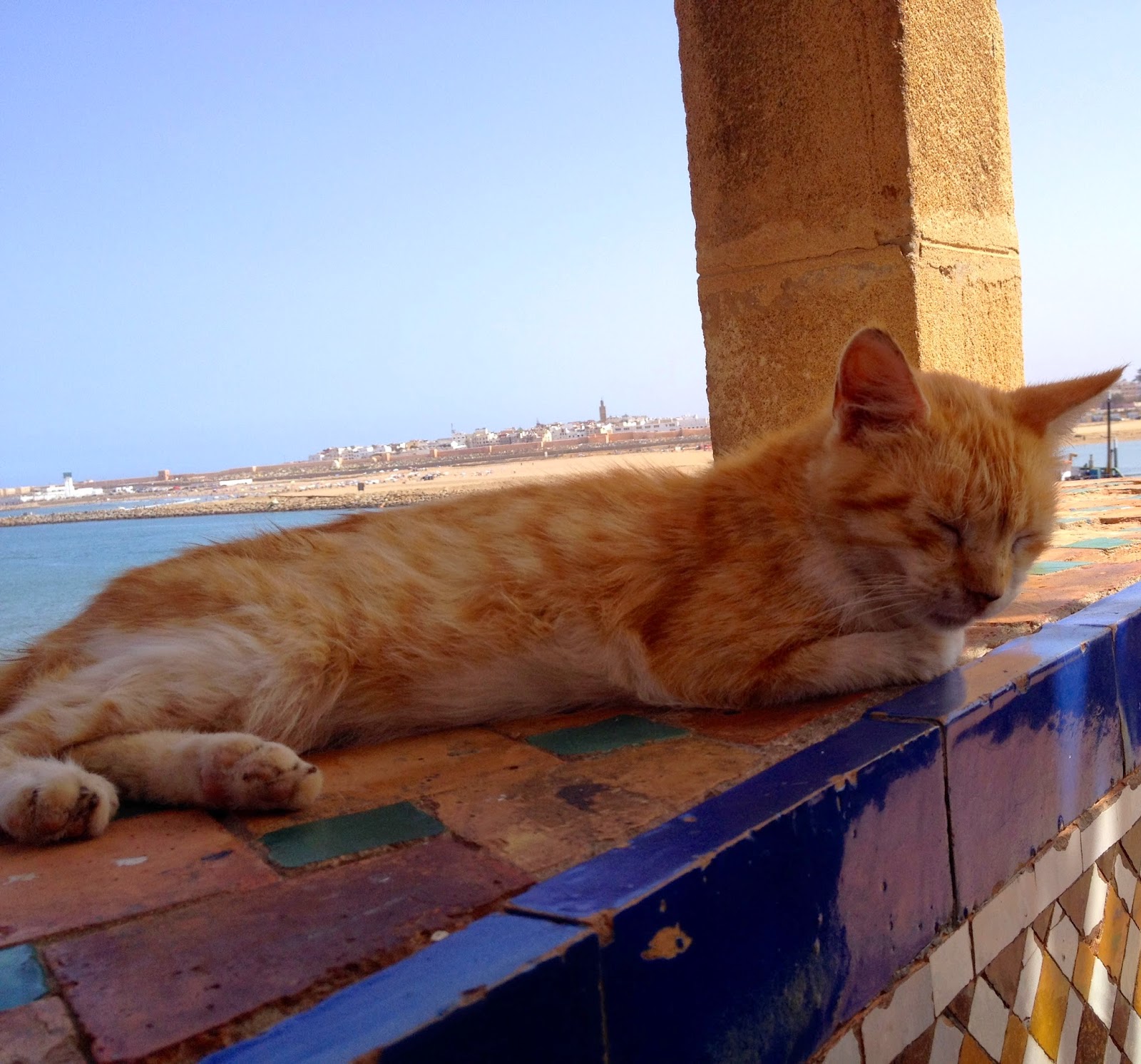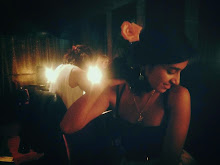The call to prayer is the most wondrous sound to hear in all of it's contextualized character. In the morning it's discordant as various mosques start the prayer at the different times. In the evening the prayer almost the background soundtrack to so many other interactions and transactions including vociferous bargaining, gossip, and the sounds of children playing. It's a fascinating juxtaposition that is probably one of my favorite features of the medina. On Avenue Mohammed V, the main avenue in Rabat, there are street vendors hawking shoes right across from the mosque.
I've been in Morocco for just about a week, I arrived alive but minus one bag. This program is full of incredible like-minded people who despite all having chosen Morocco as their study-abroad destination, are interested in a variety of disciplines and passionate about so many different things. My host family, funnily enough, is the same host family that Lucy had! They have a photo of her in the living room. I have two younger siblings, one sister (Khouloud) and one brother (Khalid). Khouloud is here but Khalid is at his aunts house until school starts next week. Khouloud is older and 12 but she literally could be 25. She is a force to be reckoned with, a social butterfly in the medina, and full of street smarts. She has declared McDonalds to have the best ice-cream in Rabat.
Speaking of Rabat, the city is truly a gem. I had some idea of what to expect from my Google image searches but to actually see it is a full experience all together.
Facts that are easier to list than discuss:
1. Rabat is divided into four parts - pre-colonial, colonial, post-colonial, and post-modern. Pre-colonial is where I live and refers mostly to the walled medina. Colonial is all remnants of the period of French occupation. Post-colonial and post-modern are farther from the medina and are still being developed.
2. There are actually two city walls in Rabat, one dating to the 12th century and one dating to the 17th century. The 12th century wall was build by Jacob the Victorious who wanted to make Rabat his capital, but died before he could finish constructing it.
3. Rabat is the political capital of Morocco, the commercial capital being Casablanca and religious/cultural being Fes. Therefore the king's palace is located here as are the government ministries, the parliament and embassies and consulates.
There are more, but that's all I can get to now. The next list is of hilarious mishaps and fun things we tried to do this week.
1. Take the tram. This was not entirely a failure. We wanted to take the tram to a trendy district of Rabat called Agdal, where there are a lot of clubs and bars. We bought tram tickets and asked two girls in French for directions to Agdal. They directed us to what we assumed was the correct line and stop. But once we got off at the stop, we realized it was almost five stops away from where we should've been. So we ended up wandering around for a bit and then finally hailing cabs. But the night turned out to be a success!
2. Going out! Nightlife here is fabulous! Live music in bars and pubs here is really big and we caught a really good local bands and singers at the two places we went to. Lots of lounges have dance nights where they do salsa or belly-dancing which we will probably most definitely try. And of course, the future holds a trip to the "largest nightclub in Africa" which is in Marrakech, prepare yourselves.
3. Buy a local phone. We had to do this for the program, but it also involved utilizing long dormant French language skills on my part and visiting several stores for the best deal.
4. Using language. This first week has really convinced me to thank the stars I took French. I'm realizing I know a lot more French than I thought I did. I've used it to talk to shopkeepers, waiters, ice-cream vendors, and of course, my host mom and sister who don't speak English. I've actually managed to communicate quite a bit and it's so reassuring to know I actually can express myself. The next step is to stop relying on French as a crutch and really try to learn Darija.
5. Street harassment. Damn. I didn't think this would be that big of an issue, but apparently all Moroccans can tell that I'm Indian, and this somehow sets me apart from my American classmates. Shopkeepers and street vendors shout at me on the street, saying things like "dance for us, so pretty Indian princess," and "namaste!" It's a bit disconcerting to be so blatantly exotified here, but there is literally nothing you can do to prevent it but try to ignore it.
Photos below show the Center for Cross Cultural Learning (where our classes are), the Oudaya (old fortress), the Kasbah (old city) the Rabat beach, view from our hotel's rooftop, and other lovely places I've visited. Tomorrow we're all going to hang at the beach for the day together.
Besselam!






















0 Kommentarer:
Post a Comment